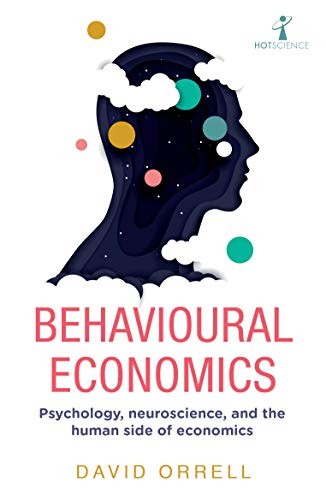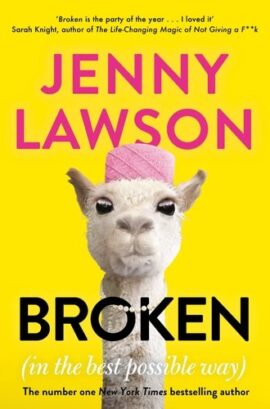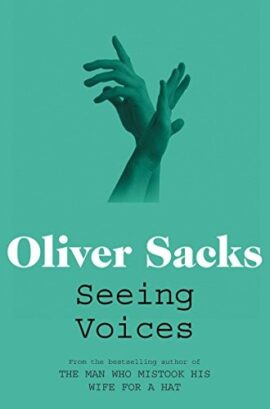Behavioural Economics: Psychology, neuroscience, and the human side of economics
2.600,00 د.ج
The controversial science that claims to have revolutionised economics.
For centuries, economics was dominated by the idea that we are rational individuals who optimise our own ‘utility’. Then, in the 1970s, psychologists demonstrated that the reality is a lot messier. We don’t really know what our utility is, and we care about people other than ourselves. We are susceptible to external nudges. And far from being perfectly rational we are prone to ‘cognitive biases’ with complex effects on decision-making, such as forgetting to prepare for retirement.
David Orrell explores the findings from psychology and neuroscience that are shaking up economics – and that are being exploited by policy-makers and marketers alike, to shape everything from how we shop for food, to how we tackle societal happiness or climate change. Finally, he asks: is behavioural economics a scientific revolution, or just a scientific form of marketing?
The controversial science that claims to have revolutionised economics.
For centuries, economics was dominated by the idea that we are rational individuals who optimise our own ‘utility’. Then, in the 1970s, psychologists demonstrated that the reality is a lot messier. We don’t really know what our utility is, and we care about people other than ourselves. We are susceptible to external nudges. And far from being perfectly rational we are prone to ‘cognitive biases’ with complex effects on decision-making, such as forgetting to prepare for retirement.
David Orrell explores the findings from psychology and neuroscience that are shaking up economics – and that are being exploited by policy-makers and marketers alike, to shape everything from how we shop for food, to how we tackle societal happiness or climate change. Finally, he asks: is behavioural economics a scientific revolution, or just a scientific form of marketing?
| Editeur |
|---|
Produits similaires
An Anthropologist on Mars
The Hidden Life of Trees: What They Feel, How They Communicate
Dear Ijeawele, or a Feminist Manifesto in Fifteen Suggestions
A few years ago, Chimamanda Ngozi Adichie received a letter from a dear friend from childhood, asking how to raise her new baby girl a feminist.
Although she has written and spoken out widely about feminism, Adichie wasn't sure how to advise her friend Ijeawele. But as a person who'd babysat, had loved her nieces and nephews, and now, too, was the mother of a daughter herself, she thought she would try. So she sent Ijeawele a letter with some suggestions--15 in all--which she has now decided to share with the world.
Compelling, direct, wryly funny, and perceptive, Dear Ijeawele offers specifics on how we can empower our daughters to become strong, independent women. Here, too, are ways parents can raise their children--both sons and daughters--beyond a culture's limiting gender prescriptions. This short, sharp work rings out in Chimamanda's voice: infused with deep honesty, clarity, strength, and above all love. She speaks to the important work of raising a girl in today's world, and provides her readers with a clear proposal for inclusive, nuanced thinking. Here we have not only a rousing manifesto, but a powerful gift for all people invested in the idea of creating a just society--an endeavour now more urgent and important than ever.
Broken: in the Best Possible Way
‘Broken is the party of the year . . . I loved it’ - Sarah Knight, bestselling author of The Life-Changing Magic of Not Giving a F**k
As her fans already know, Jenny Lawson suffers from depression. In Broken, Jenny humanizes what we all face in an all-too-real way, reassuring us that we’re not alone and making us laugh while doing it. Of course, Jenny’s long-suffering husband Victor, the Ricky to Jenny’s Lucille Ball, is along for the ride.
Hilarious, heart-warming and honest, Broken is about living, surviving, and thriving. A beacon of hope and a wellspring of laughter when we all need it most.
A New York Times, Washington Post and LA Times bestseller.
Musicophilia: Tales of Music and the Brain
A Higher Loyalty: Truth, Lies, and Leadership
Seeing Voices: A Journey into the World of the Deaf
Man’s Search For Meaning: The classic tribute to hope from the Holocaust
'A book to read, to cherish, to debate, and one that will ultimately keep the memories of the victims alive' John Boyne, author of The Boy in the Striped Pyjamas
A prominent Viennese psychiatrist before the war, Viktor Frankl was uniquely able to observe the way that both he and others in Auschwitz coped (or didn't) with the experience. He noticed that it was the men who comforted others and who gave away their last piece of bread who survived the longest - and who offered proof that everything can be taken away from us except the ability to choose our attitude in any given set of circumstances. The sort of person the concentration camp prisoner became was the result of an inner decision and not of camp influences alone. Frankl came to believe man's deepest desire is to search for meaning and purpose. This outstanding work offers us all a way to transcend suffering and find significance in the art of living.










